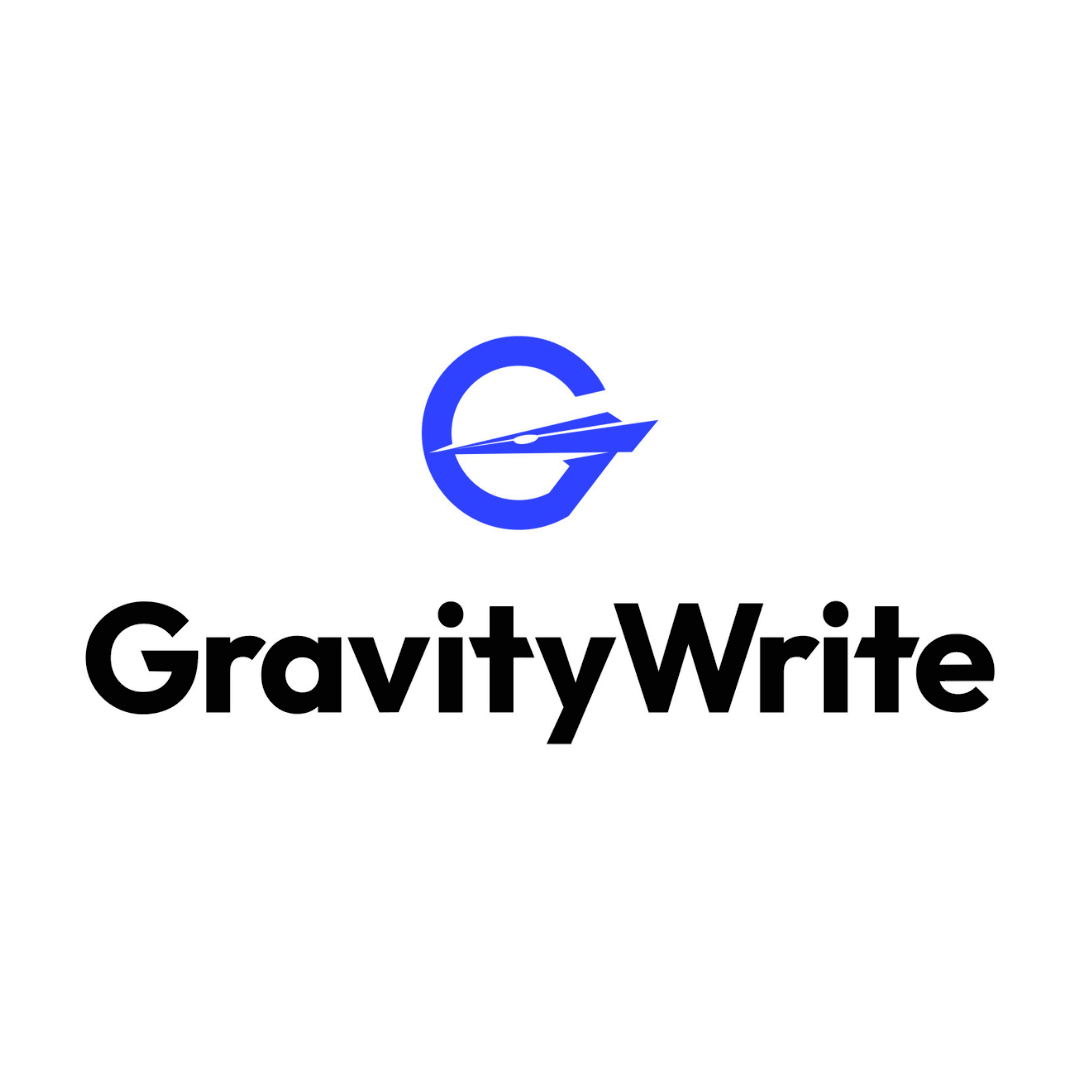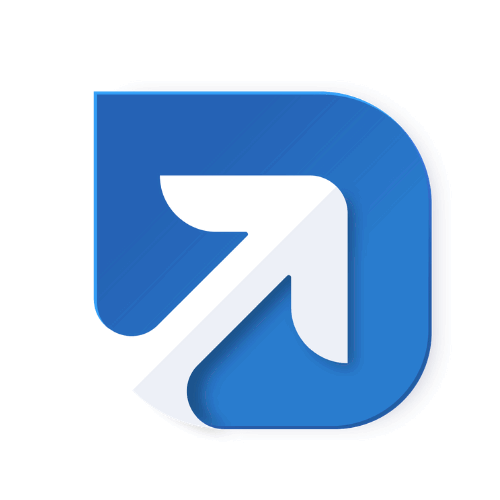Description

GravityWrite

Skyword
Comprehensive Overview: GravityWrite vs Skyword
As of my last update in October 2023, here's a comprehensive overview of GravityWrite and Skyword, focusing on their primary functions, target markets, market share, user base, and key differentiating factors:
GravityWrite
a) Primary Functions and Target Markets
Primary Functions: GravityWrite is a platform designed for content creation and management with a strong focus on leveraging natural language processing (NLP) and machine learning technologies. Its primary functions typically include:
- Content Generation: Automated writing and content creation using AI-driven tools.
- Editing and Optimization: Tools for improving content quality, SEO optimization, and readability.
- Collaboration: Features that facilitate teamwork in creating and managing content.
Target Markets: GravityWrite primarily targets:
- Marketing Teams: Especially those involved in digital content marketing and brand storytelling.
- Small to Medium Enterprises (SMEs): Companies looking to enhance their content production capabilities without large in-house teams.
- Content Creators and Freelancers: Individuals needing efficient tools for writing and publishing.
b) Market Share and User Base
GravityWrite's market share and user base are generally smaller compared to more established platforms. However, its niche capabilities in AI-driven content generation make it appealing to tech-savvy companies and early adopters looking for cutting-edge content solutions.
Skyword
a) Primary Functions and Target Markets
Primary Functions: Skyword is a comprehensive content marketing platform focused on enhancing brand storytelling and content strategies. Its primary functions typically involve:
- Content Strategy Development: Tools for planning and managing content campaigns aligned with marketing goals.
- Content Creation and Management: Features for commissioning, creating, and publishing content across various channels.
- Performance Analytics: Insights and analytics to measure content success and ROI.
Target Markets: Skyword mainly targets:
- Enterprises and Large Brands: Companies seeking robust content marketing strategies to engage large audiences.
- Marketing Agencies: Agencies needing a platform to create and manage content for multiple clients.
- B2B and B2C Companies: Businesses that rely heavily on content to reach and convert their target audiences.
b) Market Share and User Base
Skyword holds a more significant market share within the content marketing industry due to its established presence and comprehensive feature set. It caters to a diverse and extensive user base, including well-known brands and enterprises that prioritize storytelling.
Key Differentiating Factors
-
Technology and Innovation:
- GravityWrite: Emphasizes AI and NLP technologies, focusing on automated content generation and optimization features.
- Skyword: Primarily centered around strategic content creation and management, offering more traditional yet comprehensive marketing solutions.
-
Target Audience:
- GravityWrite: Appeals to smaller businesses and individual creators looking for innovative tools to boost productivity and streamline content creation.
- Skyword: Attracts larger enterprises and agencies that need detailed content strategies and performance analytics.
-
Focus on Content Strategy:
- GravityWrite: More tactical with a focus on generating and refining content.
- Skyword: Strategic, with a well-rounded approach to managing entire content marketing campaigns and storytelling.
-
Ease of Use vs. Adaptability:
- GravityWrite: Generally seen as more user-friendly, suitable for quick deployment with minimal setup.
- Skyword: Offers deep customization and scalability, which might involve a steeper learning curve.
In summary, while both GravityWrite and Skyword serve the content creation market, they cater to different segments and needs, with Skyword being the choice for enterprises needing a comprehensive content strategy solution, and GravityWrite appealing to those seeking innovative, AI-driven content generation tools.
Contact Info

Year founded :
2023
31-1800-648-659
Not Available
Netherlands
http://www.linkedin.com/company/gravitywrite

Year founded :
2010
+1 800-778-7879
Not Available
United States
http://www.linkedin.com/company/skyword
Feature Similarity Breakdown: GravityWrite, Skyword
As of my last update, GravityWrite and Skyword are both content creation and management platforms, each designed to assist with content marketing by leveraging content strategies, creation, and distribution. Here's a feature similarity breakdown for both:
a) Core Features in Common:
-
Content Creation Tools:
- Both platforms provide comprehensive tools to aid in the writing and creation process, including templates, formatting options, and draft management.
-
SEO Optimization:
- They offer built-in SEO tools to help optimize content for search engines, including keyword suggestions and analytics.
-
Content Management Systems (CMS):
- GravityWrite and Skyword allow users to organize, categorize, and manage their content efficiently within a central system.
-
Collaboration Features:
- Both platforms provide collaboration features that enable multiple users to work on content simultaneously, track changes, and provide/receive feedback.
-
Publishing and Distribution:
- They support publishing content to various platforms and channels, streamlining the distribution process.
-
Analytics and Reporting:
- Both tools offer analytics and reporting features to track content performance, audience engagement, and ROI.
b) User Interface Comparison:
-
GravityWrite:
- GravityWrite likely boasts a sleek and modern interface with intuitive design elements that prioritize ease of use. Its layout may focus heavily on the content creation workflow, making it accessible to users at all skill levels.
-
Skyword:
- Skyword's interface is user-friendly and professionally designed, with a focus on clear navigation and robust project management features. It emphasizes strategy and planning alongside content creation, reflecting its broader suite of marketing tools.
c) Unique Features:
-
GravityWrite:
- AI-Powered Writing Assistance: GravityWrite may offer advanced AI tools that assist in content creation by providing suggestions, checking grammar, and enhancing writing style, which could be unique or more advanced compared to Skyword's offerings.
- Integration Capabilities: If GravityWrite integrates with a wider array of third-party tools and services or offers unique API functionalities, this could set it apart.
-
Skyword:
- Content Strategy and Planning: Skyword is known for its emphasis on content strategy, offering tools that help plan content calendars and align content with business outcomes more effectively.
- Freelancer Integration: Skyword has a robust network of freelance writers and creators, making it easier for businesses to outsource content creation directly through the platform, which might be a feature not as pronounced or available in GravityWrite.
Overall, both platforms are competitive within the content creation and marketing sphere, with their unique strengths catering to different aspects of content management and strategy. Users' choice may depend on their specific needs related to content strategy, creation capability, or integration potential with other marketing tools.
Features

Not Available

Not Available
Best Fit Use Cases: GravityWrite, Skyword
GravityWrite and Skyword both offer content creation and management solutions, but they cater to different needs and types of businesses. Here's a breakdown of their best fit use cases, including how they cater to different industry verticals and company sizes:
GravityWrite
a) For what types of businesses or projects is GravityWrite the best choice?
-
Small to Medium Enterprises (SMEs): GravityWrite is ideal for smaller companies looking for affordable, efficient content generation. It often includes AI-driven writing tools that enable businesses to produce high-quality content quickly without a large team.
-
Startups and Marketing Agencies: Startups and small marketing firms can benefit from GravityWrite's ability to generate content rapidly, helping them maintain an active online presence and engage audiences without incurring substantial costs.
-
E-commerce Platforms: Businesses in the e-commerce domain can use GravityWrite to generate product descriptions, customer reviews, and other sales-driven content to enhance their product pages and influence purchasing decisions.
-
Blogging and SEO Copywriting: GravityWrite is suitable for creating blogs and SEO-focused content. Its AI capabilities can help optimize content for search engines, improving visibility and organic traffic.
Skyword
b) In what scenarios would Skyword be the preferred option?
-
Enterprise-level Corporations: Skyword is designed to handle complex content strategies and large-scale operations, making it ideal for big companies with diverse and extensive content needs.
-
Industries with High Content Demand: Businesses in the tech, finance, healthcare, and media industries, which require consistent, high-quality content over multiple platforms, would benefit from Skyword's robust content creation and management capabilities.
-
Multi-channel Marketing Campaigns: Companies running expansive marketing campaigns across various channels will find Skyword’s ability to manage, track, and optimize content across platforms highly beneficial.
-
Brand-focused Content: For businesses that prioritize brand storytelling and building a cohesive brand narrative, Skyword provides tools and services to develop and distribute compelling and consistent brand-focused content.
d) How do these products cater to different industry verticals or company sizes?
-
Industry Verticals:
- GravityWrite is more suited for industries that require rapid, cost-effective content production, like retail, hospitality, and smaller niche markets. Its AI-driven tools streamline content creation well-suited for SEO and e-commerce needs.
- Skyword caters to verticals where storytelling and content strategy are key, such as healthcare, finance, technology, and media. Its platform supports in-depth strategies and multi-platform content distribution.
-
Company Sizes:
- GravityWrite targets small to medium-sized businesses where resources are limited, making AI-generated content a practical choice.
- Skyword is optimal for larger enterprises that can leverage its comprehensive content management system and can invest in more sophisticated content strategies and analytics to engage audiences on a broader scale.
In summary, GravityWrite provides an affordable, efficient solution for smaller-scale content needs, while Skyword offers a robust platform for larger enterprises focusing on strategic content marketing and brand development across multiple channels.
Pricing

Pricing Not Available

Pricing Not Available
Metrics History
Metrics History
Comparing teamSize across companies
Conclusion & Final Verdict: GravityWrite vs Skyword
When choosing between GravityWrite and Skyword, it's crucial to evaluate them based on overall value, which includes factors such as features, cost, user experience, and support. Below is an analysis to help determine which product might be the best fit for different needs.
Conclusion and Final Verdict:
a) Best Overall Value:
Considering all factors such as cost, capabilities, scalability, support, and ease of use, Skyword generally offers the best overall value for enterprise-level businesses that prioritize content marketing strategy and implementation at scale. It is particularly advantageous for those needing comprehensive tools for multi-channel content distribution, comprehensive analytics, and integration with other enterprise systems.
GravityWrite, however, presents a solid value for smaller businesses or individuals who may prioritize AI-driven content creation with a focus on simplicity and cost-effectiveness. It provides an accessible and efficient way to generate content with fewer resources.
b) Pros and Cons:
Skyword:
-
Pros:
- Comprehensive suite of tools designed for large-scale and strategic content marketing.
- Strong focus on integration and scalability, supporting collaboration across teams.
- Offers robust analytics and performance metrics.
- Extensive support and resources for strategy and execution.
-
Cons:
- Higher cost, which may not be feasible for smaller organizations or freelance writers.
- Could be overwhelming or too complex for simple content needs or less tech-savvy users.
GravityWrite:
-
Pros:
- User-friendly interface with a focus on ease of use, great for quick content generation.
- Cost-effective solution ideal for smaller teams or individuals.
- AI-driven features that can speed up the content creation process significantly.
-
Cons:
- Limited features compared to enterprise solutions, may not meet all the needs of a large-scale operation.
- Could have restrictions in analytics and multi-channel distribution.
c) Recommendations:
-
For Large Enterprises or Scale-Focused Businesses: Skyword is recommended due to its extensive features and capability to handle complex content strategies efficiently.
-
For Small to Medium Businesses or Freelancers: GravityWrite is more suitable if the primary need is a budget-friendly, straightforward tool that enhances productivity with AI capabilities.
-
Specific Use Case Considerations:
- If strategic insight and the ability to measure and optimize content performance are crucial, Skyword's robust analytics and support services would be beneficial.
- If quick content generation with minimal setup is desired, and there's no immediate need for extensive tracking or distribution capabilities, GravityWrite would be advisable.
Ultimately, the choice should be driven by assessing the specific needs and capabilities of your organization or personal use case, factoring in available budget and required scalability.
Add to compare
Add similar companies



